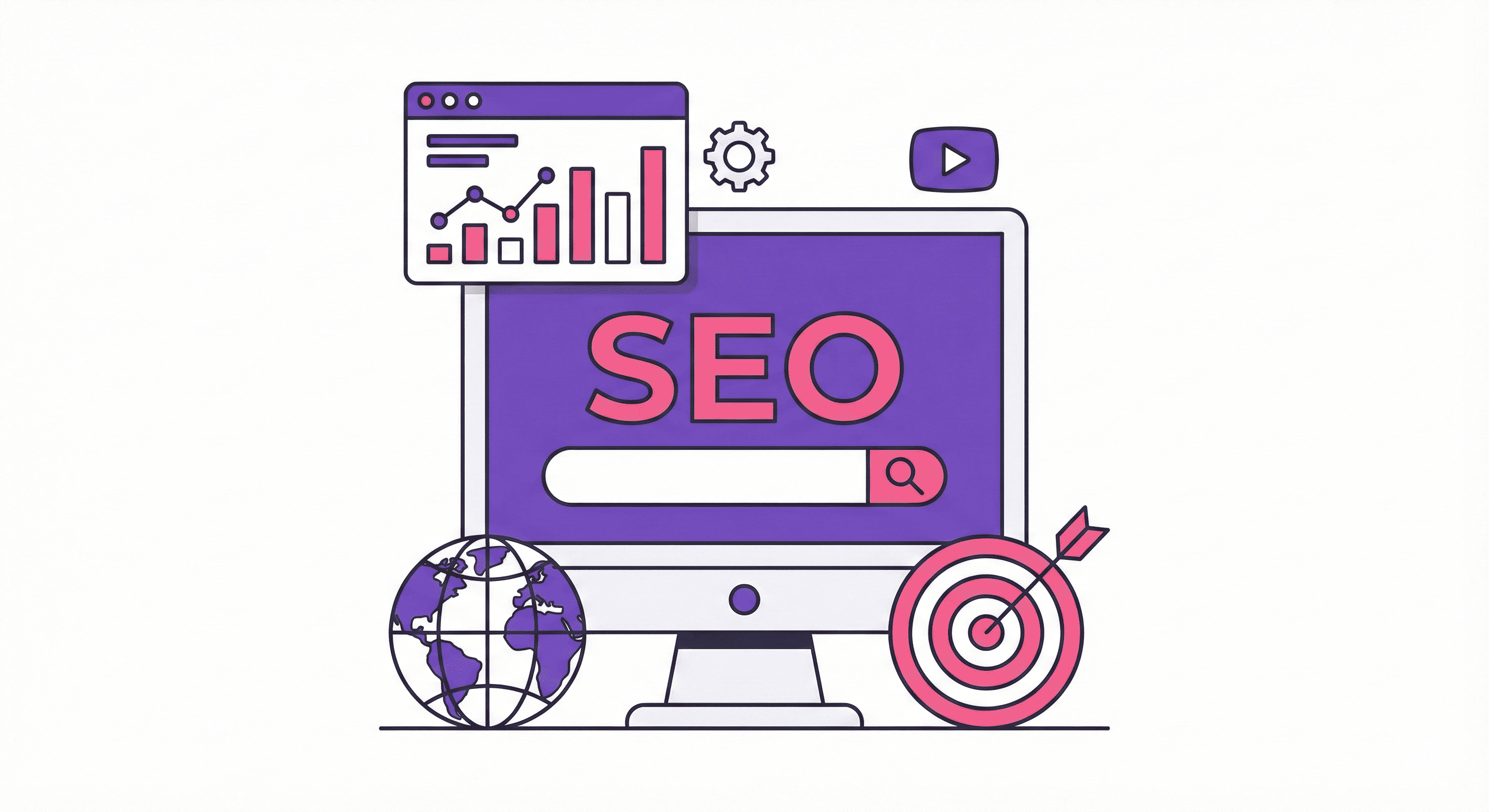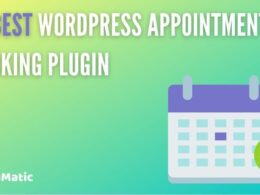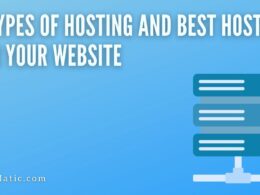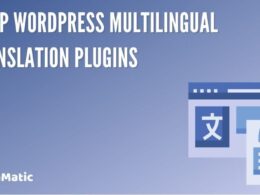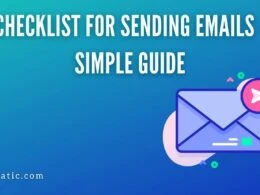The search world is going through a major shift right now. With AI showing up in almost every platform, the old way of chasing organic clicks is getting harder. Fewer clicks are making it through, and businesses now have to think about visibility in a much wider sense.
It is no longer just about ranking on Google. Brands need a presence across AI search tools, YouTube, and other places where people look for answers. In an AI-heavy world, this kind of visibility matters for staying competitive.
This post looks at the top SEO and AI tools available. The goal is to help marketers and business teams understand what is worth using and where to invest.
To make things clearer, we will break the market into simple groups so you can see what each type of tool actually does and where it fits.
Market Segmentation
Understanding the diverse and expanding tool market requires a structured approach. Segmenting the available solutions helps businesses clarify where each platform fits within a holistic digital marketing strategy, from foundational, all-encompassing suites to specialized tools designed for singular, critical tasks.
This framework organizes the primary tools into three functional categories:
- All-in-One Marketing Platforms: Semrush, Ahrefs, Mangools, Serpstat.
- Specialized Function Tools: SEOGets, Screaming Frog, ChatGPT, Keyword Insights, Detailed, Yoast SEO, Clearscope, Featured, BuzzStream, and Exploding Topics.
- Workflow & Productivity Integrations: Google Sheets, Google Looker Studio, Monday.com, Figma.
We will now proceed with a deep-dive analysis of the all-in-one platforms, which represent the most significant strategic investment for many organizations.
Deep Dive: All-in-One Marketing Platforms
All-in-one platforms basically give you one place to run your marketing. You do not have to jump between different tools anymore.
You can handle SEO, content, ads, and even newer tasks like AI visibility from the same spot. It makes it easier to manage everything and see how your marketing is actually doing.
Premium Suites: Semrush vs. Ahrefs
Semrush
Semrush works as an all-in-one platform for organic marketing. You can manage SEO, AI search, and even PPC from the same place. Its biggest strength is competitor research.
The Domain Overview tool shows how other sites get their traffic, which keywords they lean on, and how they build their content. This is complemented by excellent keyword and backlink intelligence capabilities.
Critically, Semrush is a pioneer in the emerging field of AI Visibility, offering tools to track brand mentions, citations, and sentiment across major LLMs like ChatGPT, Perplexity, and Gemini.
For organizations evaluating an investment, a tiered approach to its plans: Semrush One is ideal for integrated SEO and AI visibility workflows; the AI Visibility Toolkit offers a standalone solution for AI tracking; and Semrush Enterprise provides the scale required for large operations and agencies. Pricing for the platform begins at $139.95 per month.
| Pros | Cons |
| Industry-leading competitor analysis for SEO and PPC | A lot of features — can feel overwhelming at first |
| Excellent keyword, backlink, and content intelligence | Best features sit behind paid plans |
| New AI visibility tools let you see how LLMs mention and cite your brand | AI tracking requires an added plan (Toolkit or Enterprise AIO) |
| Covers SEO, PPC, content, and AI search in one workflow |
Ahrefs
Ahrefs is the primary tool people look at when they want something other than Semrush. A lot of folks like it because the interface is easy to use. The Content Explorer is helpful when you need ideas, and it does a solid job with link research. Many teams end up using it along with Semrush, since each one has things it does well.
When comparing the two tools, Semrush typically offers more for about the same price. Ahrefs sticks mostly to SEO. Semrush adds social tools and PPC on top of that, so it covers more of your marketing work in one place.
Budget-Friendly Alternatives: Mangools & Serpstat
Mangools
Mangools is a good fit for anyone working with a smaller budget. It works well for new sites, solo work, or small teams that just need the basics.
KWFinder helps identify low-competition keywords, and LinkMiner makes it easy to check competitor backlinks and find new growth opportunities.
With plans starting at $43.85 a month, it’s an easy way to get into SEO tools without spending too much.
| Pros | Cons |
| Budget-friendly alternative to premium SEO tools | It takes a long time to process and analyze rankings when adding a new website |
| Approachable design—making it easy to understand reports | Limited data compared to premium tools |
Serpstat
Serpstat is the closest match to Mangools. The main advantage is that it gives you more data to work with. It also has batch analysis, which lets you check several domains or keywords at the same time. That makes it a better fit for people who handle multiple projects at once.
All-in-one platforms give you a wide view of your marketing, but sometimes you need tools that go deeper. For things like technical SEO and content research, the more specialized tools usually deliver stronger results.
Analysis of Specialized Function Tools
All-in-one tools give you a wide set of features, but the smaller, focused tools go deeper in the areas they are built for. They handle specific SEO tasks with more detail than a general tool usually can.
That is why many teams use them alongside a main platform. They fill the gaps, add extra power, and help with tasks that need more precision.
Technical SEO & Performance Monitoring
- Screaming Frog is a go‑to tool for checking a site’s health. It runs on your computer and crawls pages like search engines do. While crawling, it flags broken links, duplicate content, and redirect problems. You can hook it up with GA4, GSC, or even OpenAI for extra insights. That makes jobs like writing meta descriptions or digging into data much simpler. The license costs $279 a year, which is fair if you’re serious about audits.
- SEOGets is a handy dashboard for Google Search Console insights. It helps SEO managers and agencies by centralizing data from many sites. With one view, they can track performance without juggling multiple reports. The tool highlights topic cluster growth and spots decaying content. This eliminates the need for manual reporting and speeds up prioritization. At $49 per month, it’s an affordable option for smarter, data‑driven SEO work.
- Detailed is a free Chrome extension built for quick on‑page SEO checks. With one click, it displays key elements like titles, meta descriptions, headers, internal links, and canonical URLs. Its biggest advantage is speed. You get instant, actionable insights without leaving your browser. Lightweight and simple, it’s perfect for fast SEO reviews.
Content & Keyword Intelligence
- Clearscope is an AI tool that helps writers match content with search intent. It makes optimization easier by showing trending keywords and popular user questions. It also spots underperforming pages that need a refresh. This data‑driven approach boosts relevance and ranking potential. Pricing starts at $129 per month, making it a premium choice for serious content teams.
- Keyword Insights is built for handling huge keyword lists. It can organize up to 200,000 keywords into clusters using live SERP data. Grouping keywords that top‑ranking pages share helps avoid cannibalization and builds topical authority. This makes it perfect for planning content strategies on large websites. Pricing starts at $58 per month, offering strong value for scale‑driven SEO teams.
- Exploding Topics is a platform for spotting trends early. It helps marketers find rising opportunities before they get saturated. By tracking search volume and social conversations, it surfaces what’s starting to gain attention. Paid plans add forecasts for long‑term trend growth. This makes it easier to plan content and product strategies with confidence. Pricing starts at $39 per month, keeping it accessible for most teams.
Link Building & Digital PR
- Featured offers a unique model for securing high-authority backlinks and media mentions. The platform connects subject-matter experts with journalists and editors from top-tier publications like Entrepreneur and HubSpot. Experts respond to queries in a Q&A format, and if selected, their answer is published with a citation. This streamlines the process of earning media placements. Pricing starts at $49.75 per month, with a free plan available to submit three answers.
- BuzzStream functions as a comprehensive outreach and link-building management platform. It is designed to scale outreach campaigns efficiently by helping users find prospects, create custom email sequences, and automate follow-ups. By centralizing relationship management it removes much of the manual tracking associated with large-scale digital PR. Pricing starts at $24 per month.
This analysis of specialized tools highlights their crucial role in a modern marketing stack, leading us to examine the single most transformative force impacting all of these functions: Artificial Intelligence.
The Strategic Imperative: AI’s Integration into the SEO Toolkit
Artificial Intelligence is no longer a peripheral feature but a core strategic component that is fundamentally reshaping SEO workflows. The influence of AI has moved beyond simple automation to impact every facet of the discipline, from high-level competitive analysis and trend forecasting to the granular tasks of content creation and optimization.
AI Visibility: The New Competitive Frontier
The concept of “AI Visibility” has emerged as a critical new metric for brand health. Its strategic importance is rooted in the fact that a growing share of users now receive direct answers and product recommendations from Large Language Models (LLMs) before ever visiting a traditional search results page.
To address this frontier, Semrush has developed AI Visibility tools that actively monitor a brand’s presence across major platforms, including ChatGPT, Gemini, and Google AI Overviews. These tools provide vital intelligence on brand mentions, sentiment, Share of Voice, and the source domains that AI models rely on to formulate their answers, giving businesses a new lens through which to manage their reputation and influence.
AI for Strategy and Content Creation
Beyond monitoring, AI is becoming an indispensable partner in strategy development and content execution.
- ChatGPT, priced from $20/month, is positioned as an “AI assistant” and brainstorming partner for tackling complex SEO challenges. Its utility shines in helping strategists structure pages, refine broad content concepts, and organize free-flowing ideas into actionable plans.
- Clearscope leverages AI specifically for data-driven content optimization. By analyzing top-ranking content it provides tactical recommendations, identifies critical user questions that need to be answered, and suggests relevant terms and entities to include, all to improve a page’s relevance and rank potential.
The pervasive impact of AI underscores the need for a clear framework to guide tool selection, ensuring that investments align with these new strategic realities.
Decision Framework: Selecting the Right SEO Tool Stack
The optimal tool stack is not universal; it is highly dependent on an organization’s specific context, including its budget, team size, operational scale, and strategic priorities. This section provides a comparative snapshot of leading tools and a set of guiding questions to help teams navigate the selection process and build a stack that aligns with their unique needs.
- Comparative Tool Snapshot
- This table summarizes key offerings to provide a quick reference for decision-making.
| At-a-Glance Tool Comparison | |||
| Tool | Primary Function | Ideal User Profile | Starting Price Point |
| Semrush | All-in-one SEO, PPC, and AI Visibility | Marketers managing programs at scale or needing integrated SEO/AI workflows | $199 per month |
| Ahrefs | All-in-one SEO platform | SEO-focused teams that prioritize a clean interface and deep content/link analysis. | ~$129 per month |
| SEOGets | Google Search Console insights dashboard | SEO managers and agencies managing multiple websites | $49 per month |
| Screaming Frog | Desktop site crawler for technical audits | SEO professionals requiring deep, customizable technical site analysis | $279 per year |
| Clearscope | AI-powered content optimization | Content teams focused on improving rankings and meeting search intent | $129 per month |
| Featured | Securing high-authority backlinks | Experts and brands looking to gain media mentions in top-tier publications | $19 per month |
| Mangools | Budget-friendly SEO toolkit | Solo operators or teams with new projects and limited budgets | $43.85 per month |
| Exploding Topics | Trend discovery and market research | Marketers seeking to capitalize on emerging trends before they become mainstream | $39 per month |
Key Questions for Tool Investment
To further refine the selection process, teams should consider the following strategic questions:
- Scope of Need: Do you require a comprehensive, all-in-one platform to manage multiple marketing channels, or a specialized tool for a specific task like technical audits or content optimization?
- AI Visibility Priority: How critical is it for your brand to monitor mentions and sentiment within AI-generated answers from platforms like ChatGPT and Google AI Overviews?
- Team Size and Scale: Are you a solo operator, a lean team, an agency managing multiple clients, or an enterprise-level organization?
- Budgetary Constraints: What is your monthly or annual budget? Are you seeking entry-level, budget-friendly options or premium, feature-rich solutions?
Answering these questions will provide the clarity needed to make a sound investment, a crucial step toward navigating the future of search.
Conclusion: Navigating the Future of Search Visibility
The SEO tool market is in a period of rapid and significant evolution, driven primarily by the ascent of AI search. This transformation has shifted the goalposts from a narrow focus on traditional rankings to a broader, more holistic objective: multi-platform “visibility.” The market has responded with a wide spectrum of solutions to meet this new demand.
At one end are powerful all-in-one suites like Semrush, which are actively integrating traditional SEO workflows with next-generation AI visibility tracking. At the other end are highly specialized tools that provide deep, best-in-class expertise in functions from technical auditing to content intelligence and digital PR.
In this evolving landscape, strategic tool investment is no longer an operational choice but the primary driver of competitive advantage. Success will be determined by the ability to build an agile, integrated tool stack that masters both traditional search and the new frontier of AI visibility.





